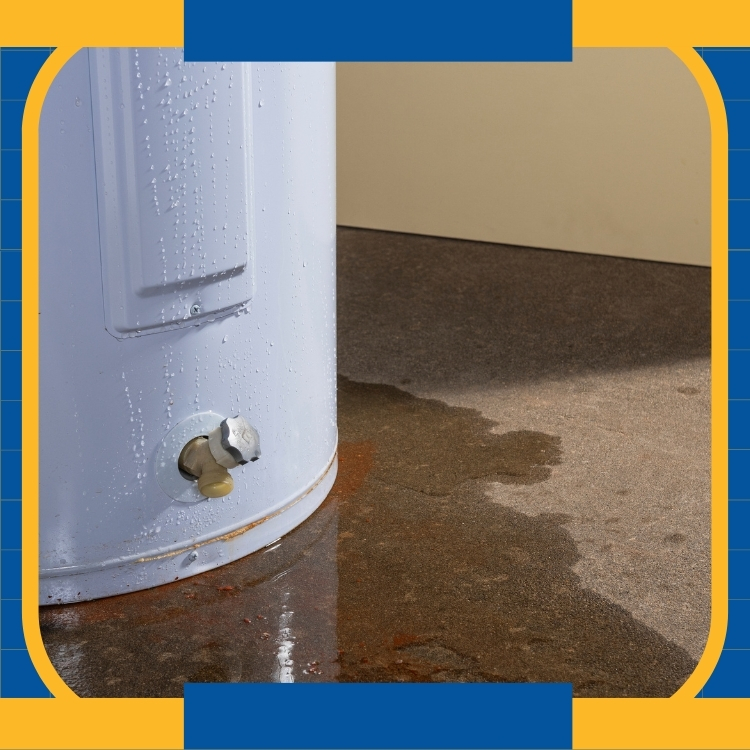
Decoding the Drip: Hot Water Heater Leaking Woes Unveiled
Embarking on a blissful hot shower only to discover a puddle around your water heater can swiftly turn the experience into a plumbing predicament. A leaking hot water heater is a common household hassle, but fear not – let’s dive into the intricacies of this issue and unveil solutions to keep the drip at bay.
Identifying the Culprit: The Origins of Hot Water Heater Leaks
Before delving into solutions, it’s imperative to identify the source of the leak. Hot water heater leaks can stem from various issues, such as a faulty pressure relief valve, a corroded tank, loose connections, or a worn-out drain valve. Pinpointing the specific problem is the first step towards effective resolution.
Pressure Relief Valve Woes: A Common Culprit
The pressure relief valve serves as a safety feature, releasing excess pressure from the water heater. However, if it malfunctions, it can lead to leaks. Check for a steady drip from the valve or surrounding areas. If detected, it may require tightening, repair, or replacement to restore its proper functioning.
Corrosion Conundrum: Tackling Tank-Related Leaks
Over time, water heaters are susceptible to tank corrosion, especially in regions with hard water. Inspect the tank for visible signs of rust or corrosion. If the leak emanates from the tank itself, it could indicate a more severe issue. In such cases, consulting a professional becomes crucial to assess the extent of damage and explore repair or replacement options.
Loose Connections: Tightening the Threads of Leaking Woes
Sometimes, the solution to a leaking hot water heater is as simple as tightening loose connections. Examine all the fittings and joints for any signs of water seepage. If identified, use a wrench to snugly tighten the connections. This elementary fix can often resolve minor leaks and prevent further water escapades.
Drain Valve Dilemma: Addressing Wear and Tear
The drain valve, located at the bottom of the water heater, can be a potential leak point. Sediment buildup or wear and tear over time may lead to leaks. Try tightening the valve or, if the leak persists, consider replacing it. Regular maintenance, including periodic flushing to clear sediment, can prevent such issues.
In the midst of troubleshooting hot water heater leaks, if you find yourself in need of expert assistance, consider reaching out to professionals specializing in hot water heater leaking. They can swiftly diagnose the issue and implement effective solutions to put an end to your leaking worries.
Preventive Measures: Guarding Against Future Leaks
An ounce of prevention is worth a pound of cure, and this adage holds true for hot water heater leaks. Implementing preventive measures can go a long way in averting potential leaks. Regularly flushing the tank to remove sediment, inspecting valves and connections, and scheduling professional maintenance can all contribute to a leak-free water heating experience.
Emergency Response: Swift Action for Severe Leaks
In cases of sudden and severe leaks, swift action is paramount. Shut off the power supply to the water heater and turn off the water and gas supply. This immediate response can mitigate potential damage and create a safer environment for further inspection or professional intervention.
Professional Intervention: When in Doubt, Seek Expert Guidance
While DIY solutions are suitable for minor leaks, significant issues demand professional expertise. If you’re uncertain about the cause or unable to resolve the leak yourself, it’s advisable to seek the guidance of a qualified plumber. Professional intervention ensures accurate diagnosis and appropriate measures to address the root cause of the leak.
Conclusion: Navigating the Waters of Hot Water Heater Leaks
In conclusion, a leaking hot water heater doesn’t have to plunge your home into chaos. By understanding the potential causes and implementing timely solutions, you can navigate the waters of hot water heater leaks with confidence. Whether it’s a simple tightening of connections or a more complex tank replacement, addressing the issue promptly ensures a steady and leak-free flow of hot water in your household.










